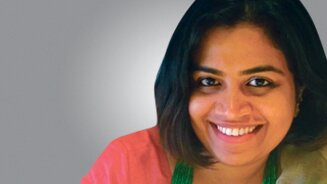Health Analytics India - An Initiative By dataLEADS

When a world-renowned cardiac surgeon says that healthcare is nothing but interpretation of data, you know that times have changed.
“Within 10 years, it’ll be legally mandatory for doctors to take a second opinion from software. Machines will prevail,” asserted Dr Devi Shetty, founder and chairman, Narayana Hrudayalaya, at a recent conclave organised by the alumni association of IIM Bangalore. The audience responded with laughter and applause, only to realise that the Padma Bhushan awardee was indeed serious about his prophecy.
The great leveller
Did you know that there are only 2,445 diseases and 638 symptoms in the world? Those are the numbers provided by the Centers for Disease Control and Prevention (CDC), said Dr Shetty. As the biggest industry in the world – pegged at 8 trillion USD – healthcare needs to move beyond the confines of finite diagnosis based on symptoms. Data has the power to present the big picture, in the right context, to facilitate better patient outcomes.
Online healthcare is slowly becoming a reality, and Dr Shetty is confident that technology will enhance the patient experience. “According to PwC, India needs two million doctors and six million nurses. India has 60 million diabetics and only 600 diabetologists. Technology can make healthcare more accessible,” he explains.
A thought-provoking study by The Lancet found that lack of surgery causes 32.6 per cent of all global deaths. The situation is particularly distressing in a country like India that needs 65 million surgeries, but manages only about 26 million.
Digital transformation can empower healthcare institutions to bridge this yawning gap, avers Dr Shetty. Technology can be a great leveler, bringing world-class medical facilities within the reach of all. “Just remember to carry your medical history on your mobile phone,” suggests the doctor who was once the personal physician of the late Mother Teresa.
Walking the talk
Data by itself is of little use, unless it can be easily accessed and shared. There was a collective gasp from the audience, when Dr Shetty revealed that 65 per cent of sentinel events (euphemism for patient deaths) are because of communication failure. “There’s a huge communication problem – between doctors, nurses, patients, labs. We need chat platforms on handheld devices for doctors to facilitate real-time communication,” he maintained.
And if you think that the situation is any better in the US, you couldn’t be more wrong. Getting admitted in a US hospital is ten times riskier than sky diving, says data. “Digital transformation in healthcare will not happen in the US, due to their strict data privacy laws.
Where patient data is more sacred than patient life, no innovation can happen,” reasons the cardiac surgeon.
India can be a forerunner in revolutionising healthcare. The need of the hour is to leverage the power of data. For, data-driven decisions can get the healthcare discourse on track. “The beauty of data visualisation is that it can make ordinary people do extraordinary things,” affirms Dr Shetty.
Does that mean doctors will not be relevant in the digital future? Not quite. Data will prevent doctors from making mistakes. Data will dramatically change the functioning of healthcare. Data will save lives.